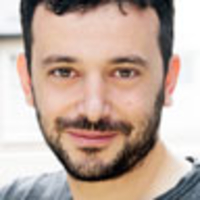
As a mathematical achievement, it may not be up there with solving the Poincaré Conjecture but it was still a remarkable feat. An 11-year-old girl from India this week became the world's fastest-ever square rooter.
Priyanshi Somani was the revelation of the Mental Calculation World Cup in Magdeburg, Germany, a little-known sporting event in which the world's top "mathletes" compete in categories such as addition, multiplication and square roots.
For those unfamiliar with the official regulations on square roots: The competitors are given 10 six-digit numbers and 15 minutes in which to calculate the square roots to an accuracy of eight significant figures.
“I can’t multiply myself out of a paper bag. But when it comes to roots, I’m your man.”
For example, the first one they were given was √439011.
And the answer, to the required number of digits, is 662.57905.
Easy, if you have a calculator. But the contestants here must work out the answer in their heads and there are linesmen to make sure that only the final answer is written down.
In previous tournaments, no one had been able to complete all 10 square root problems within the time limit. Yet Somani wrote all the answers perfectly in 6 minutes and 51 seconds.
"It was not easy, but not difficult," said Somani afterward. "I think I can do much better next time."
A calm, well-adjusted girl with a big smile and a ponytail, Somani was the youngest contestant out of the 37 who took part and was accompanied by her parents and elder brother. Her record-breaking performance helped her to win the tournament's overall title of world champion, which was all the more remarkable since she said she only started training a month ago. "I trained five hours daily," she clarified.
Second and third overall were two Spaniards, who also broke world records in the individual categories: Marc Jornet Sanz, age 16, in multiplication, and Alberto Coto, age 40, in addition.
Taking place in a university classroom at the University of Magdeburg, the Mental Calculation World Cup is probably the least rowdy sporting event of the season. Each round is preceded by a minute of concentration and rather than a start gun the umpire says in a polite German accent: "Neurons. On the ready. Go."
No spectators are allowed because mathletes are distracted by noise.
The tournament has been happening every two years since 2004, and this year contestants came from 13 countries including Mongolia, Great Britain, Iran, Peru, and Cuba. Flying the flag for the United States were Jerry Newport, a 62-year-old taxi driver from Tucson, and Scott Flansburg, from Phoenix, the math performer and author known as The Human Calculator.
Newport has Asperger's Syndrome and is best known for being the inspiration for the 2005 movie Mozart and the Whale. He won the prize for Most Versatile Calculator, which goes to the contestant who does best overall in the six rounds with surprise questions.
"It only took me 62 years," he joked on receiving his trophy. "Actually, 22,572 days."
The four prestige categories of addition, multiplication, square roots, and "calendar calculation" have official rules that are set in the Guinness World Records book.
In the multiplication round, 10 questions are set for completion in 15 minutes, each being an eight-digit number multiplied by an eight-digit number:
The first question was 49885320 x 12534959.
The answer, of course, is 625310440901880.
Marc Jornet Sanz took 4 minutes and 56 seconds to complete all 10 problems, meaning that he averaged less than 30 seconds per multiplication.
With glasses, thick eyebrows, and a moptop, Sanz was the most traditionally geek-looking of the top performers. He learned to calculate using methods popularized in Spain by Coto, the 2008 overall winner and a speed-calculation author.
Coto had to console himself with victory only in the addition round.
The rules on addition are: Ten questions are set for completion in 10 minutes, each being the addition of 10 10-digit numbers.
The first question was:
7173657903 +2160155029 +4017043966 +5971240696 +4508400215 +7113566816 +9128255865 +4869585739 +3147826158 +8745578184
The answer is 56835310571. Coto completed all 10 problems in 3 minutes 42 seconds. That's 22 seconds per sum.
Calendar calculation is the rather quaint practice of working out the day of the week when given a calendar date. In official tournaments, the dates given are between 1600 and 2100 and as many dates as possible must be solved in one minute.
The first date given was December 4, 1715.
It was a Wednesday.
Cubans are very strong at calendar calculation. This category was won by the Yusnier Viera, age 28, a software programmer formerly of Havana who now lives in Miami. He managed 48 dates in a minute—almost one a second.
Calendar calculation requires the mathletes to use one of several arithmetical algorithms. The category has its origins in the time when human calculators were stage stars, and performers would amaze members of the audiences by telling them they day they were born.
Even though the need for silence means that there is nothing theatrical about mental calculation now, it was a bizarrely gripping contest to watch.
Priyanshi Somani was not still when she calculated, but instead her fingers danced in front of her in fast jerky movements. She learned arithmetic using a soroban abacus—an ancient calculating tool with beads on rods—and even though she now calculates in her head, when she does so she moves her fingers as if there is an imaginary abacus in front of her.
When I asked her if she could calculate if her fingers were constrained, she said that she found it very difficult: "I cannot do it, but I can try."
In order to push the candidates outside their comfort zones, there were six extra rounds with surprise tasks. For example, one round required a number to be multiplied and then added. And another asked for cube, fourth and fifth roots of a six-digit number.
Jerry Newport won the surprise tasks by a large margin—his facility with numbers was much more adaptable than any of the other, non-Asperger's contestants.
After the surprise roots round, he said: "I can't multiply myself out of a paper bag. But when it comes to roots, I'm your man."
Flansburg, who says he has the world record at taking a two-digit number and adding it to itself again and again, said he was taking part to celebrate and promote math.
He sat out the square roots round:
"I hate square roots," he said.
Before this year's tournament, the winners had always been in their mid to late 30s—the last generation to learn to count before pocket electronic calculators. Their love of mental arithmetic was as much about nostalgia as it was about wanting to be the best.
But with the first and second place going to an 11-year-old and a 16-year-old, there was a feeling that a new generation of human calendars has arrived, and that this could make the sport go mainstream.
"In the future, it will be a big sport and the best calculators will be professionals, with programs for training and nutrition," said the Freddis Reyes Hernandez, aged 27, of Cuba.
Plus: Check out Book Beast for more news on hot titles and authors and excerpts from the latest books.
Alex Bellos is a journalist and broadcaster. His new book is Here's Looking at Euclid: A Surprising Excursion Through the Astonishing World of Numbers.






